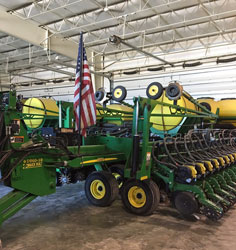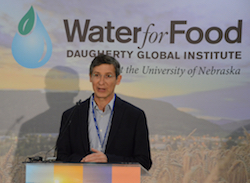 In an industry with as much innovation as agriculture it’s a wonder when anything surprises, but AgriFlyNetwork has launched a rather unique idea. Their new app allows growers, retailers and crop experts to quickly and easily connect with ariel applicators through a platform they liken to ‘Uber for farmers.’ An assignment can be ‘pinned’ on a map, giving details of the job and then operators browse through, sending their profiles when they are interested. Then the growers chooses their preferred operator.
In an industry with as much innovation as agriculture it’s a wonder when anything surprises, but AgriFlyNetwork has launched a rather unique idea. Their new app allows growers, retailers and crop experts to quickly and easily connect with ariel applicators through a platform they liken to ‘Uber for farmers.’ An assignment can be ‘pinned’ on a map, giving details of the job and then operators browse through, sending their profiles when they are interested. Then the growers chooses their preferred operator.
 “In my career, I saw that there was a need for operators to reach employers more efficiently,” says Jeff Wagenknecht, Founder of AgriFlyNetwork, Inc. and industry veteran in aerial application. “Operators in the field tend to keep within their circle, and that can limit opportunities for work. AgriFly streamlines the process by allowing operators to grow their base by working outside of their usual radius, and by allowing growers to find reputable, qualified operators right in their backyard that they might not have found otherwise.”
“In my career, I saw that there was a need for operators to reach employers more efficiently,” says Jeff Wagenknecht, Founder of AgriFlyNetwork, Inc. and industry veteran in aerial application. “Operators in the field tend to keep within their circle, and that can limit opportunities for work. AgriFly streamlines the process by allowing operators to grow their base by working outside of their usual radius, and by allowing growers to find reputable, qualified operators right in their backyard that they might not have found otherwise.”
AgriFly is offering a special deal for the first year of their app; growers and retailers using the program to find applicators can earn 15 cents per acre. Operators can get a discount on their subscription fee by signing up in the charter year as well.










